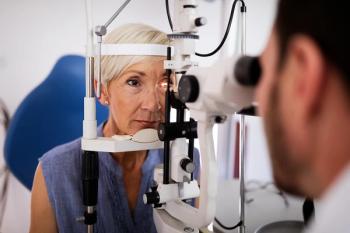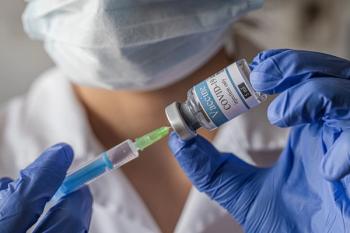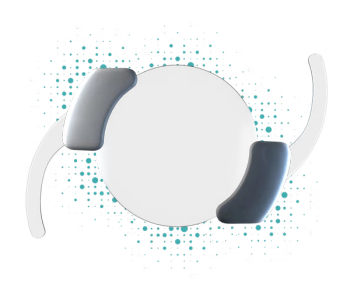Solutions to combat myopia progression are seeing further growth globally this month, with Japan's recent approval of the manufacturing and commercial sale of MiSight 1-day soft contact lenses. The lens is now the first and only contact lens approved for myopia control in 3 major markets: Japan, the US, and China. Learn the latest in our roundup of what to take away from the month of August in terms of drug and technology updates below:
Myopia
Japan rings in first soft contact lens for myopia control with MiSight 1-day approval
What to know
- MiSight 1 day is now the first soft contact lens in Japan authorized for pediatric use to both correct and control myopia progression in children.
- Japan has one of the world’s highest rates of childhood myopia.
- Commercial launch and shipping details will be announced soon.
- MiSight 1 day is now the only contact lens approved for myopia control in the three major global markets: Japan, the US, and China.
CooperVision’s MiSight® 1-day contact lens has gained approval from Japan’s Ministry of Health, Labor, and Welfare for manufacturing and sale in the country.1 This marks MiSight 1-day as the first soft contact lens in the country authorized for use by children to correct myopia and has the potential to control its progression, according to a news release.
Read more.
AMD
FDA issues complete response letter to Outlook Therapeutics for resubmitted BLA for ONS-5010
What to know
- The FDA has again declined to approve Outlook Therapeutics' ONS-5010 for wet age-related macular degeneration (AMD).
- The only deficiency cited was lack of substantial evidence of effectiveness.
- The drug did not meet the primary efficacy endpoint in the NORSE EIGHT trial.
- Outlook Therapeutics plans to work closely with the FDA to determine next steps for US approval.
The US Food and Drug Administration (FDA) has issued a complete response letter (CRL) to Outlook Therapeutics’ biologics license application (BLA) resubmission for ONS-5010 (bevacizumab-vikg) for the treatment of wet age-related macular degeneration (AMD).
Read more.
Dry eye
Alcon commercially launches Tryptyr (acoltremon ophthalmic solution) 0.003% for signs and symptoms of DED in the US
What to know
- Tryptyr was FDA-approved in May 2025 for treating signs and symptoms of dry eye disease.
- It was FDA-approved in May 2025 for treating signs and symptoms of dry eye disease.
- Tryptyr is the first neuromodulator (TRPM8 receptor agonist) approved for DED.
- Packaged in single-dose vials, the dosing is 1 drop per eye, twice daily.
Alcon recently announced the US commercial availability of Tryptyr (acoltremon ophthalmic solution) 0.003% for the treatment of the signs and symptoms of dry eye disease (DED), according to a news release.1 The solution was approved by the FDA in late May 2025 and is packaged in single-dose vials to be administered as 1 drop per eye twice a day.1,2
Read more.
Retina
Clearside Biomedical's Xipere (triamcinolone acetonide injectable suspension) approved by Health Canada, among other company news
What to know
- Xipere (triamcinolone acetonide injectable suspension) has been approved by Health Canada for treating uveitic macular edema (UME) via suprachoroidal injection.
- Xipere is now approved in the U.S., Canada, Australia, and Singapore, and is under regulatory review in China.
- Clearside is evaluating strategic options to maximize shareholder value. These include sale, licensing, or monetization of assets or technology, and mergers, partnerships, or acquisitions
In recent news from biopharmaceutical company Clearside Biomedical, Health Canada has granted approval of the company’s triamcinolone acetonide injectable suspension (Xipere) for suprachoroidal use in the treatment of uveitic macular edema (UME). Xipere has been approved for use in the US, Canada, Australia, and Singapore, and is under regulatory review in China, according to a news release.1
Read more.
Glaucoma
First patient dosed in Qlaris Bio's phase 2 Nightingale clinical trial for QLS-111
What to know
- Qlaris Bio has initiated its third Phase 2 trial of QLS-111, with the first patient dosed in the Nightingale study.
- The trial targets normal-tension glaucoma (NTG) and will assess safety, tolerability, and efficacy in adults.
- It is being conducted at multiple clinical sites across South Korea, where NTG is highly prevalent.
- QLS-111 is a first-in-class ATP-sensitive potassium channel modulator.
The first patient has been dosed in Qlaris Bio’s phase 2 Nightingale clinical trial for QLS-111 in patients with normal-tension glaucoma (NTG).1 The study, which is Qlaris Bio’s third phase 2 clinical trial of the company’s lead investigational therapy, will be evaluating the safety, tolerability, and efficacy of QLS-111 in adult patients with NTG and will be conducted at multiple clinical sites across South Korea, according to a news release.
Read more.





























